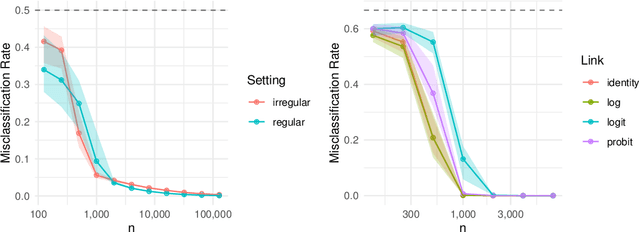Xiaoyue Niu
Perfect Spectral Clustering with Discrete Covariates
May 17, 2022
Abstract:Among community detection methods, spectral clustering enjoys two desirable properties: computational efficiency and theoretical guarantees of consistency. Most studies of spectral clustering consider only the edges of a network as input to the algorithm. Here we consider the problem of performing community detection in the presence of discrete node covariates, where network structure is determined by a combination of a latent block model structure and homophily on the observed covariates. We propose a spectral algorithm that we prove achieves perfect clustering with high probability on a class of large, sparse networks with discrete covariates, effectively separating latent network structure from homophily on observed covariates. To our knowledge, our method is the first to offer a guarantee of consistent latent structure recovery using spectral clustering in the setting where edge formation is dependent on both latent and observed factors.
 Add to Chrome
Add to Chrome Add to Firefox
Add to Firefox Add to Edge
Add to Edge